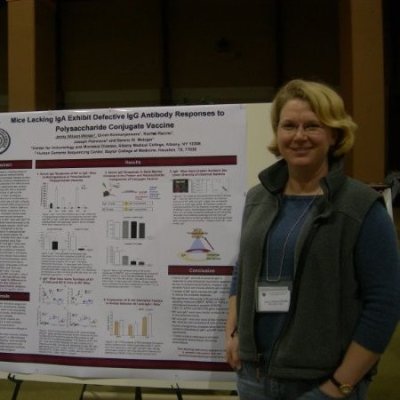Jenny Wilson-Welder serves as a Research Microbiologist at the USDA-ARS, where she specializes in the study of spirochete diseases affecting cattle, particularly Leptospirosis and Digital Dermatitis caused by Treponema species. With a robust background in microbiology and veterinary immunology, Jenny is at the forefront of...
Jenny Wilson-Welder serves as a Research Microbiologist at the USDA-ARS, where she specializes in the study of spirochete diseases affecting cattle, particularly Leptospirosis and Digital Dermatitis caused by Treponema species. With a robust background in microbiology and veterinary immunology, Jenny is at the forefront of understanding the complex interactions between these pathogens and their hosts. Her research focuses on elucidating the mechanisms of host-pathogen interactions, which is critical for developing effective intervention strategies that align with the One Health approach—an integrated framework that recognizes the interconnectedness of human, animal, and environmental health.
Currently, Jenny is leading key projects that investigate the immunological responses of cattle to Leptospira and Treponema infections. Utilizing advanced techniques in molecular biology, including PCR and qPCR, she is able to analyze pathogen load and virulence factors, providing insights that could inform vaccine development. Her expertise in mucosal immunology and both in vitro and in vivo models allows her to explore potential vaccine candidates and therapeutic interventions aimed at reducing the incidence of these diseases in cattle populations.
In addition to her research, Jenny is committed to translating her findings into practical applications that benefit the agricultural community. By collaborating with veterinarians and livestock producers, she aims to implement evidence-based strategies that enhance animal health and welfare, ultimately contributing to the sustainability of the cattle industry. Her work not only addresses immediate health concerns but also promotes a holistic understanding of disease dynamics, reinforcing the importance of a One Health perspective in veterinary microbiology.







